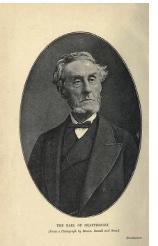1619 - 1684 Scripture: Psalm 119:1-8 Author of "Blessed Jesus, at Your Word" in Lift Up Your Hearts Clausnitzer, Tobias, born at Thum, near Annaberg, in Saxony, probably on Feb. 5,1619. After studying at various Universities, and finally at Leipzig (where he graduated M.A. in 1643), he was appointed, in 1644, chaplain to a Swedish regiment. In that capacity he preached the thanksgiving sermon in St. Thomas's Church, Leipzig, on "Reminiscere" Sunday, 1645 (ii. Sunday in Lent) on the accession of Christina as Queen of Sweden; as also the thanksgiving sermon at the field service held by command of General Wrangel, at Weiden, in the Upper Palatine, on January 1, 1649, after the conclusion of the Peace of Westphalia. In 1649 he was appointed first pastor at Weiden, and remained there (being also appointed later a member of the Consistory, and inspector of the district,) till his death, on May 7, 1684 (Koch, iii. 354, 355; Allg. Deutsche Biographie, iv. 297; Bode, p. 53; manuscript from Pastor Klinkhardt, Thum). Three hymns by him are known as follows:—
i. Jesu dein betrübtes Leiden. [Passiontide.] First published in his Passions-Blume, Nürnberg, 1662, a volume containing 12 sermons on the Passion of our Lord. The hymn appears at p. 17, in 7 stanzas of 6 lines entitled, "Clausnitzer's Passion-Hymn which may be sung with each Meditation." This form is No. 496 in Burg's Gesang-Buch, Breslau, 1746. This hymn has passed into English through a recast, probably by Gensch von Breitenau, beginning, “Herr Jesu, deine Angst und Pein," in 6 stanzas of 7 lines. First published in the Vollständiges Gesang-Buch, Plöen, 1675, No. 41, repeated as No. 101 in the Unverfälschter Liedersegen 1851. The only translation in common use is:—
Lord Jesu! may Thy grief and pain, a good translation of stanzas i., iii., vi., by A. T. Russell, as No. 84 in his Psalms and Hymns, 1851.
ii. Liebster Jesu wir sind bier, Dion und Dein Wort anzuhören. [Public Worship .] First published in the Altdorffisches Gesang-Buchlein, 1663, No. 20, in 3 stanzas of 6 lines, as a Sunday Hymn for use before Sermon. It appeared with Clausnitzer's name in the Nürnberg Gesang-Buch, 1676, No. 891, and has since come into universal use. In the Berlin Geistliche Lieder, ed. 1863, No. 1062. Translated as:—
1. Gracious Jesu! in Thy name, a good and full translated by A. T. Russell, as No. 82 in the Dalston Hospital Hymn Book, 1848. Included as No. 454 in the ed.,1857, of Mercer's Church Psalm & Hymn Book. (Ox. ed. 1864, No. 56, considerably altered with stanza i. line 4, iii. lines 1-4, from Miss Winkworth, and a doxology added).
2. Gracious Jesu! we are here, a recast of his 1848 translation, made by A. T. Russell for his Psalms & Hymns, 1851, No. 19.
8. Saviour, in Thy house of prayer, a good and full translation as No. 13 in J. F. Thrupp's Psalms & Hymns, 1853, repeated in Maurice's Collection, 1861, No. 634. In Kennedy , 1863, No. 1251, altered and beginning, "Saviour, to Thy house of prayer."
4. Blessed Jesus, at Thy word, a full and good translation by Miss Wink worth in her Lyra Germanica, 2nd Series, 1858, p. 68, repeated in her Chorale Book for England, 1863, No. 12. Included in the English Presbyterian Psalms & Hymns,1867, and others; and in America in the Pennsylvania Lutheran Church Book, 1868; Evangelical Hymnal, N. Y., 1880, and others.
5. Dear Lord, to hear Thee and Thy word, a good translation by Mrs.L. C. Smith; included as No. 50 in Dr. Stevenson's Hymns for Church & Home, 1873.
Translations not in common use:—
(1) “Dearest Jesu! we are here, Thee to hear," by J. C. Jacobi (1720, p. 32; 1722, p. 43; 1732, p. 72, alt.). In the Moravian Hymn Book, 1789, No. 12 (1849, No. 3), recast by C. J. Latrobe. (2) "Dearest Jesu, we are here, for to hear," as No. 432 in pt. i. of the Moravian Hymn Book, 1754. (3) "Here in Thy presence we appear," by J. Swertner, as No. 10 in the Moravian Hymn Book, 1789 (1886, No. 9). (4) "Blessed Jesus, we are here," by Miss Manington, 1863, p, 145. (5) "Precious Jesus! here are we," in the British Herald, Nov. 1866, p. 360, repeated in Reid's Praise Book, 1872, No. 419. (6) "Dear Redeemer, we are here," by N. L. Frothingham, 1870, p. 204.
iii. Wir glauben all an einen Gott, Yater, Sohn und heilgen Geist. [Trinity Sunday.] First appeared in the Culmbach-Bayreuth Gesang-Buch, 1668, p. 132, with the initials "C.A.D." With (Clausnitzer's name it was included as No. 572 in the Nürnberg Gesang-Buch, 1676, in 3 st. of 6 1. In the Bavarian Gesang-Buch, 1854. Translated as:—
1. We all believe in One true God, Father, Son and Holy Ghost, in full by Miss Winkworth in her Chorale Book for England, 1863, No. 75, and thence as No. 118 in the American Methodist Episcopal Hymnal, 1878, and the Evangelical Association Hymn Book, 1882, No. 64.
2. One true God we all confess, by E. Cronenwett, as No. 209 in the Ohio Lutheran Hymnal, 1880. [Rev. James Mearns, M.A.]
--John Julian, Dictionary of Hymnology (1907)
Tobias Clausnitzer


 My Starred Hymns
My Starred Hymns











